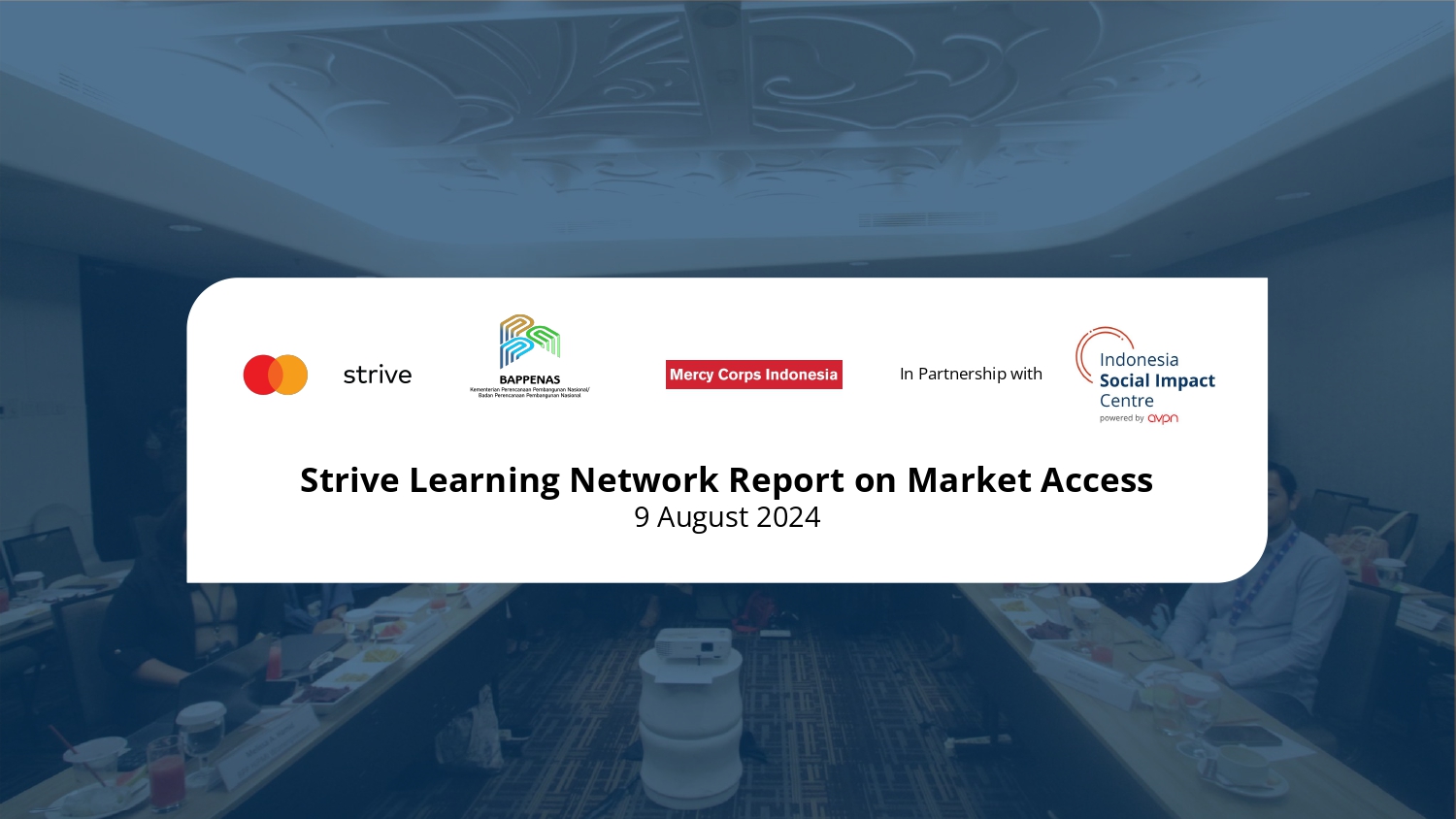
Striving to Thrive (2024)
Report on Market Access
The roundtable discussion centered on the critical role of aggregators—both companies and cooperatives—in improving market access for MSMEs. Participants emphasized the need for specialized engagement, mapping product and market niches, and ensuring consistency in quality, capacity, and continuity from MSME suppliers. Ethical practices, particularly the fair distribution of margins along the supply chain, were highlighted as essential for sustainable business models. Participants discussed the importance of leveraging both national and international market opportunities, especially targeting diasporas and migrant workers. Additionally, the potential of e-commerce platforms was recognized, with calls for greater support and promotion of local products. Lastly, infrastructure and policy alignment were seen as pivotal to optimizing market access and supporting MSMEs.
Metadata Dokumen
| Bidang Kategori | Kedeputian Bidang Kependudukan dan Ketenagakerjaan |
| Unit Kerja | Direktorat Pengembangan Usaha Mikro, Kecil, Menengah, dan Koperasi |
| Jenis Pengetahuan | Pengetahuan Explicit |
| Jenis Output | event |
| Referensi yang Digunakan | Pendekatan Kualitatif melalui Diskusi |
| Mitra (Unit Kerja/Instansi Lain) | Internal UKE (Direktorat Pengembangan Usaha Mikro, Kecil, Menengah, dan Koperasi) Instansi lain (Mastercard, Mercy Corps Indonesia) |
| Bisnis Proses |
● MSMEs face difficulties accessing markets due to overwhelming competition, especially on e-commerce platforms dominated by larger players with higher budgets for commissions and fees. ● Lack of knowledge and skills in product and brand development further hinders MSMEs from standing out in a crowded marketplace. ● Adapting to constantly evolving industry requirements and standards adds complexity for MSMEs in securing stable market presence. |
| Manfaat | ● Aggregators play a crucial role in ensuring MSMEs' success and sustainability in both domestic and international markets by mapping product specialisation and target markets. ● Each MSME product category requires tailored expertise to maintain consistent quality, capacity, and continuity from suppliers. ● In-depth engagement with aggregators, including cooperatives and companies, is needed to establish a Code of Ethics that ensures ethical practices, fair trade principles, and equitable margin distribution. ● The Code of Ethics could eventually lead to a certification policy that distinguishes ethical aggregators from exploitative ones. ● Indonesia’s "Golden Indonesia" vision highlights the importance of developing aggregators focused on national and international markets to raise per capita income. ● International markets, particularly the Indonesian diaspora and migrant workers, offer untapped potential for MSMEs, while modern retail networks are implementing models that lower barriers for MSME products. ● E-commerce platforms need to enhance MSME promotion programs by introducing “local product” labels and offering verified sellers specific privileges, boosting visibility and sales. ● Aggregators’ roles should include mentorship (quality control and education), access to capital, and logistical support to help MSMEs overcome challenges such as high logistics costs. ● Supply Chain Financing, facilitated by aggregators, should be developed as an alternative to traditional bank loans, providing MSMEs with greater financial flexibility. ● Ongoing collaboration between the private, social, and public sectors is key to opening market access, supported by initiatives such as the National Export Enhancement Task Force and ASEANACCESS.COM to facilitate international trade partnerships |
| Hak Akses Dokumen | Terbuka |
| Dokumen Pengetahuan | |
| Tanggal Publikasi | 15 Oktober 2024 10:48:50 |
| Video | - |
